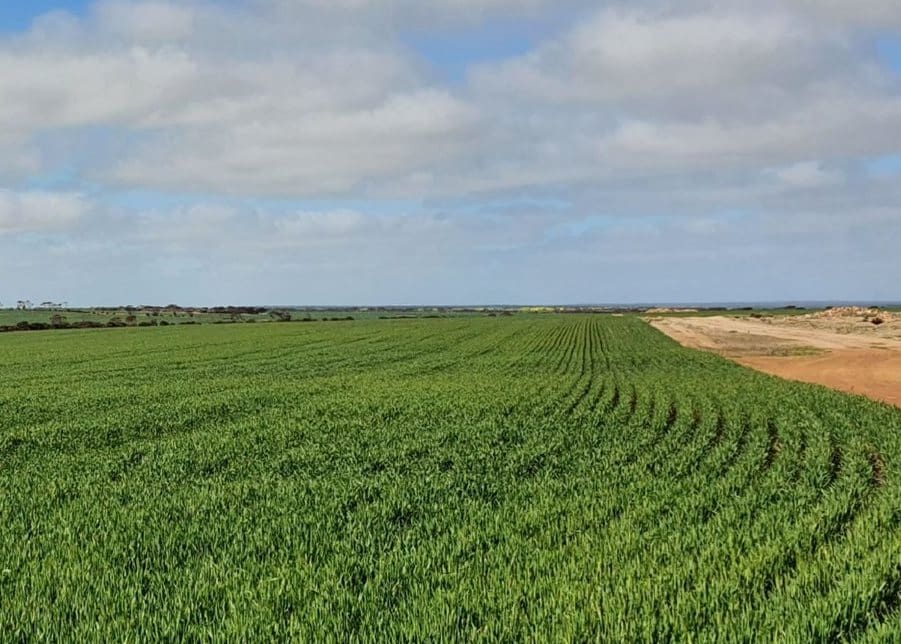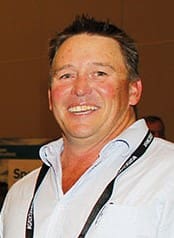
Barley area in WA is down this year, but the state is in no danger of losing its position as Australia’s biggest barley producer. Photo: Paul Carmody, Cascade
A FURTHER drop in barley area can be expected in Western Australia from next year if China remains out of the market for Australian barley, according to CBH Group trading manager Drew Robertson.
Speaking at the Grain Industry Association of WA (GIWA) Barley Forum 2020 on Monday, Mr Robertson said barley’s higher yields relative to wheat, and its historically small discount to wheat, have seen WA’s barley area climb in the past decade.
“Barley yields about 15 per cent higher than wheat in WA than wheat,” Mr Robertson said.
“Barley has grown from 18pc of the commodity mix to 34pc, largely at the expense of wheat.
“In 2021, we’ll probably start to see the percentage of barley decline.”
Prior to China’s introduction of a tariff on Australian barley, GIWA forecast WA’s area planted to barley at 1.8 million hectares (Mha), down from last year’s record 1.9Mha ahead of concerns about the tariff’s impact on 2020-21 prices.
GIWA’s latest estimate puts WA’s planted barley area at 1.62Mha, and reverses the growth trend in WA barley area seen in the decade to now.
Mr Robertson said 2013 was the year “China really started to step up”, and between 2013 and 2018, helped to make feed barley’s discount to APW wheat historically small at $40-$45 per tonne.
WA’s experience has been mirrored nationally, with ABARES data showing barley yields have been “significantly higher” than wheat.
Globally competitive
The spread between wheat and barley has now widened to around $70/t, with APW at $310/t and barley at $240/t.
Its earlier discount to wheat was more than offset by bigger yields, but now does not provide the same buffer to growers.
“Barley has been very profitable for growers at that decile five pricing range.
“Prior to 2013, the main pricing point was traditional markets in the Middle East and also Japan.
“The price for Australian feed barley is now equivalent to the cheapest feed barley in the world.
“We need to be comptitive into those Middle East markets.”
Mr Robertson said an oversupply of malting barley was likely to keep pressure on malting’s premium over feed which was now at a small $5/t.
Opening the forum on Monday, GIWA’s chief executive officer Larissa Taylor said COVID-19, the geopolitical landscape and China’s tariff all posed significant challenges for WA’s barley industry.
“This year, our competitive environment has changed,” Ms Waters said.
“Globalised access to markets is different, and going forward, only resilient supply chains will succeed.”

Lyndon Mickel
GIWA Barley Council chair and Esperance grower Lyndon Mickel said the GIWA forum was normally focused on foreshadowing required malting barley segregations for the upcoming harvest as an “industry-good service”, but COVID, China and other factors had altered its purpose this year.
“This is an opportunity for us as a whole barley industry.”
He said while challenges abounded, some strong areas of demand, including the domestic stockfeed sector, and potential markets, were cause for optimism.
“The breeders are still breeding, the growers are still growing, chasing that bumper crop, and markets are chasing top dollar.”
WA is Australia’s biggest barley grower by far, and its five-year production average to last year sits at 4Mt, with around 30pc of it historically being exported as malting, and the balance feed.
WA is forecast by ABARES to produce 3.9Mt of the 10Mt national crop now in the ground.
WA generally supplies around half of Australia’s barley exports which historically sit at around 6Mt, double the domestic feed and malting consumption.
Grain Central: Get our free daily cropping news straight to your inbox – Click here

HAVE YOUR SAY